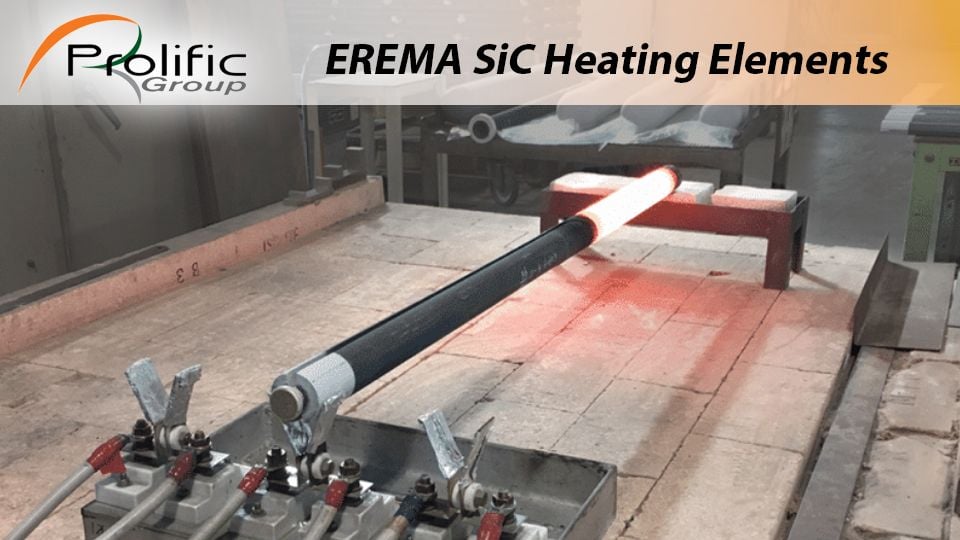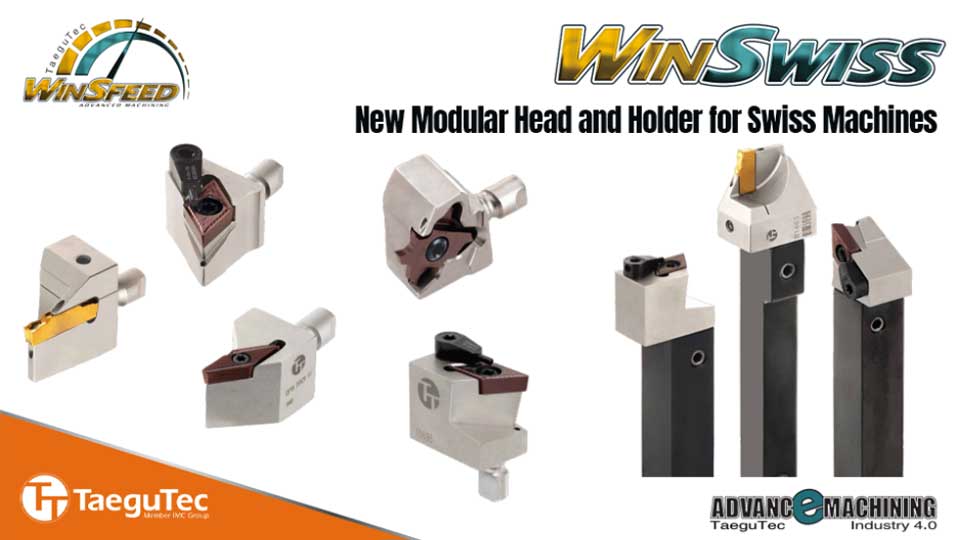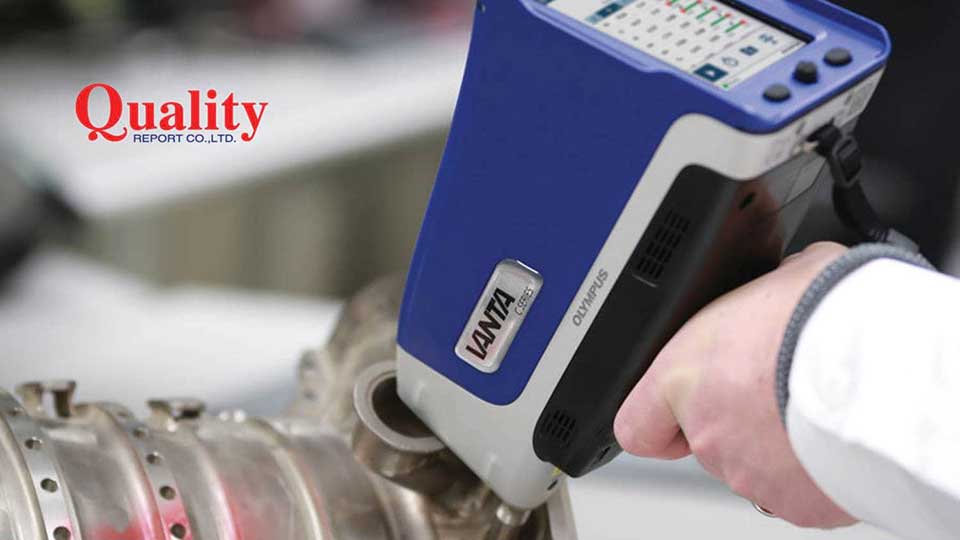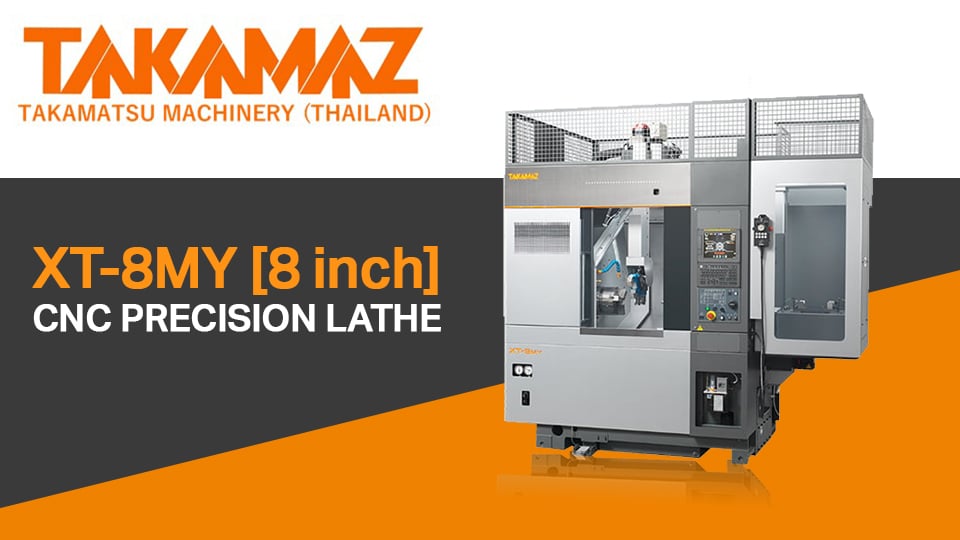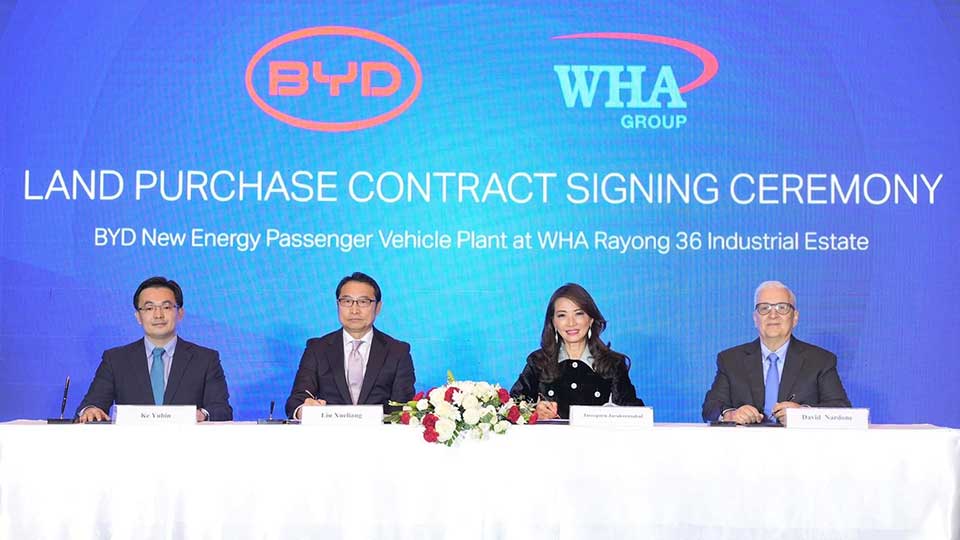
WHA Seals 600-rai Landmark Deal with BYD For First BYD New Energy Vehicles Plant in ASEAN
WHA Seals 600-rai Landmark Deal with BYD For First BYD New Energy Vehicles Plant in ASEAN.
Bangkok, 8 September 2022 – WHA Industrial Development PLC, a subsidiary of WHA Group, Thailand's leader in fully-integrated Logistics, Industrial Estates, Utilities & Power, and Digital Platform announced today the signing of a significant land purchase agreement with leading electric vehicle manufacturer BYD for a 600-rai plot (96 hectares or 237 acres) at WHA Rayong 36 Industrial Estate. WHA Group's 11th industrial estate in Thailand, WHA Rayong 36 Industrial Estate is strategically located in the Eastern Economic Corridor (EEC). The land sale to BYD, WHA's most significant in 20 years, highlights WHA Group's strategy to support the EEC and to attract S-Curve industries, especially in the Next Generation Automotive sector.
The deal was signed by Ms Jareeporn Jarukornsakul, Chairman and Group Chief Executive Officer, WHA Corporation PCL, Mr. David Nardone, Group Executive – Industrial and International, WHA Industrial Development Plc., Mr Liu Xueliang, General Manager of BYD Asia-Pacific Auto Sales Division and Mr Ke Yubin, General Manager of BYD (Thailand), during an auspicious ceremony held at the Grand Hyatt Erawan Bangkok, in the presence of top executives of both companies.
Supported by Thailand's Board of Investment (BOI), BYD Thailand will build an electric passenger car plant using the most advanced technology for right-hand drive vehicles at WHA Rayong 36 Industrial Estate. With operations expected to start in 2024 and an annual capacity of 150,000 electric passenger cars, the plant's production will be exported to ASEAN countries and Europe.
Founded in February 1995 in China, BYD has accumulated over twenty years of experience in the field of new energy vehicles. In April 2022, BYD announced that it had stopped production of full combustion engine vehicles and would focus on battery electric (BEV) and plug-in hybrid (PHEV) vehicles. On August 8, 2022, BYD officially appointed Rêver Automotive Company Limited as the sole distributor of BYD in Thailand, with an EV sales target of over 10,000 units in the first year of operations. Rêver Automotive Co., Ltd. is a Thai company formed by local partners among the 3rd generation heirs of Siam Motors Group.
"I would like to extend our sincere thanks to BYD's management for placing their trust in WHA Group for their new electric passenger car plant," said Ms Jareeporn Jarukornsakul, Chairman and Group Chief Executive Officer, WHA Corporation PCL. "This is a proud moment and a significant milestone for WHA Group, as well as a meaningful breakthrough for the next generation automotive industry in Thailand. We are delighted to welcome BYD to WHA Rayong 36 Industrial Estate, our 11th industrial estate in Thailand. Our world-class facilities and services, excellent infrastructure, and strategic location make it the perfect choice for BYD to expand its operations and enhance its international presence," she added.
This strategic land acquisition also confirms Thailand's strengths that continue to attract major industrial investors from China and other countries. WHA is proud to accompany the Thai government in achieving its aim to become Southeast Asia's hub for electric vehicles, enhancing the country's economic growth, and gaining a solid reputation for vision, leadership and innovation," she added.
Opening this new overseas production facility at WHA Rayong 36 Industrial Estate is truly a significant advancement in our group's expansion," commented Mr. Liu Xueliang, General Manager of BYD Asia-Pacific Auto Sales Division. "Following a thorough search and screening process, Thailand and WHA Rayong 36 Industrial Estate emerged as the ideal choice due to their geographical position and reputation as a leading industrial estate player in the region. The EEC and WHA Rayong 36 Industrial Estate offer exactly what we were looking for: outstanding location, talented human resources, world-class services and facilities, top-quality logistics and infrastructure. In addition, WHA Group has been playing an instrumental role in the expansion of the automotive cluster in the EEC. These are crucial factors for our investment, and we look forward to a mutually beneficial and long-term relationship with WHA Group."
WHA Rayong 36 Industrial Estate: EEC-approved for new-generation industries
WHA Group's newest industrial estate in Thailand, WHA Rayong 36 Industrial Estate covers 1,281 rai (205 hectares or 507 acres). Strategically situated close to Rayong's Highways 36 and 3375, it is only 25 kms from Map Ta Phut Deep Sea Port, 31 kms from Laem Chabang Deep Sea Port and 23 kms to U-Tapao Airport. In line with WHA's "Smart Eco Industrial Estates" concept, WHA Rayong 36 Industrial Estate features the latest digital and innovative technologies in terms of communications, mobility, security and safety, environment control, water production and wastewater treatment. Like all other WHA industrial estates in Thailand, WHA Rayong 36 Industrial Estate is linked to WHA's Unified Operations Center (UOC), located at its headquarters at WHA Tower in Bangna, enabling real-time monitoring of several environmental parameters, such as air quality, industrial water and wastewater quality, as well as rainfall levels, traffic management and safety.
WHA Group's expanding automotive cluster in the EEC
This land purchase deal between WHA Group and BYD (Thailand) represents a significant step toward Thailand's vision to become Southeast Asia's hub for electric vehicles (EVs). The BOI has approved 26 EV projects from 17 companies to date, representing a total production capacity of 830,000 electric vehicles. By early 2023, the country expects to reach its production target of one million EV units. By 2030, forecasts show that electric vehicles should represent 30% of Thailand's total car production or 700,000 EVs per year.


